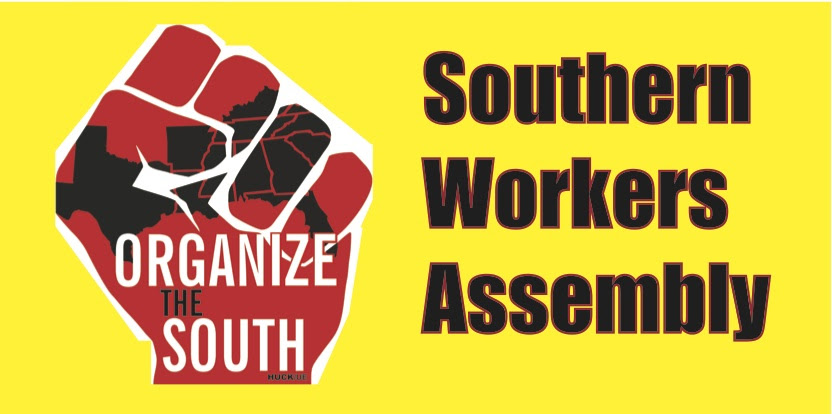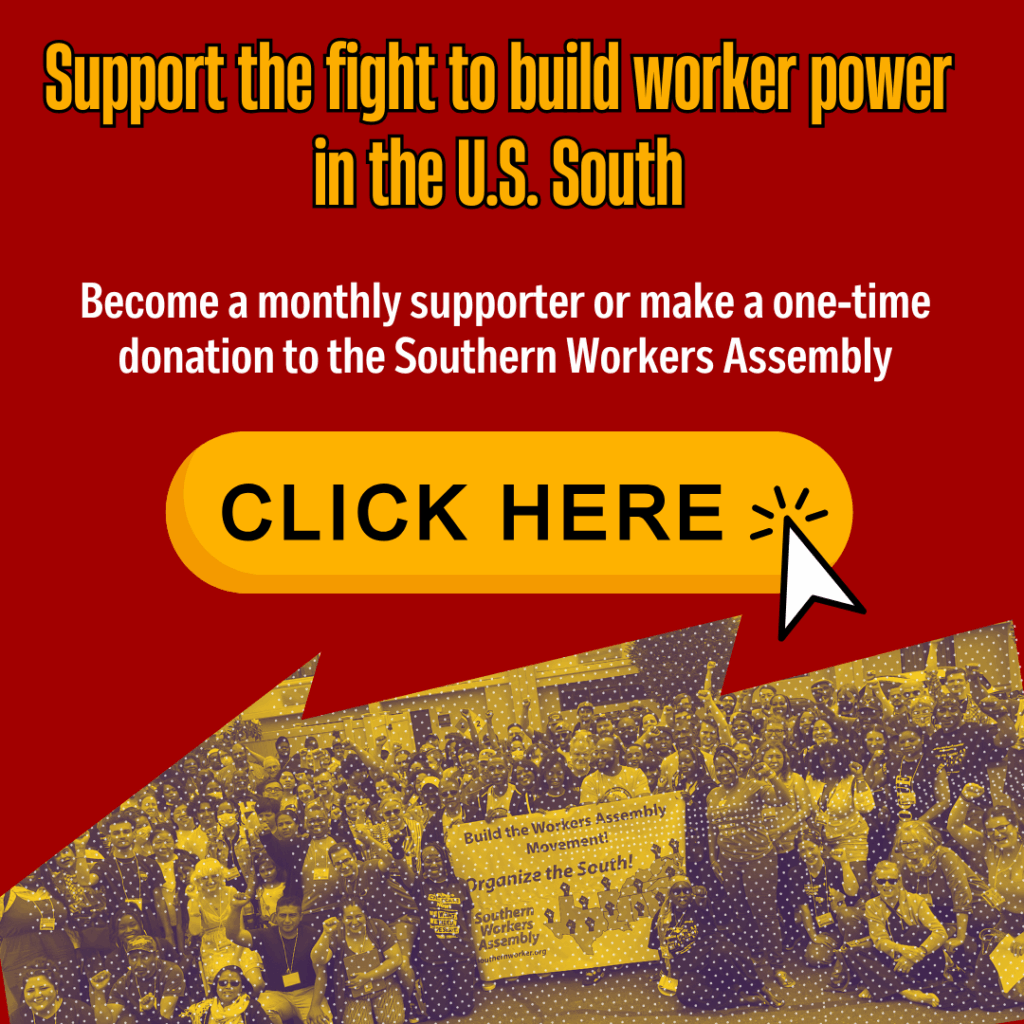The second Bessemer Alabama Amazon workers and Retail Wholesale and Department Store Union (RWDSU) labor board union vote will be counted starting on March 28th. It comes as a result of the National Labor Relations Board ruling that Amazon’s anti-union actions in the 2021 union campaign, was in violation of laws in the National Labor Relations Act.
When looking at the challenges and meaning of the Bessemer Amazon union campaigns, It’s important to have a long view of organizing labor in the South. Transnational corporations like Amazon are attracted to the South, because of the low wages, its anti-union laws and the racist divisions in the working-class.
The 75% Black worker majority at the Bessemer Amazon warehouse in 2021, gave many in the labor and social justice movements a glimmer of hope, that the Bessemer workers union campaign amidst the Black Lives Matter climate, might become a spark for organizing labor across the South.
With the technological changes in production and the US and international supply chain, Amazon has emerged as a 21st Century core industry in the US national and global economy. It was prepared to do whatever was necessary to crush the Bessemer Amazon union vote, even if its actions were in violation of the law.
It did not matter that newly elected President Biden released a public press statement expressing support for the right of workers to unionize (even though it did not explicitly endorse the Amazon pro-union campaign and vote). It reflects the growing dominance of corporate power over all levels of US government.
During the last two months leading up to the 2021 Bessemer union vote, national solidarity actions in support of the Bessemer union vote were held in 50 cities and 20 states across the US. These actions were responding to a call for holding a National Day of Action in Solidarity with Bessemer Amazon worker’s union vote, made by the Southern Workers Assembly (SWA). The SWA is a network of developing local worker assemblies and industrial and sector unity councils, helping to build an infrastructure for organizing social movement unionism in the South.
Self-organized rank-n-file committees in Amazon warehouses and delivery centers, organizing groups like Amazonians United and some labor union interests in organizing in Amazon, became more visible, as the breath of national solidarity for Bessemer began to show itself. The Queens and Staten Island New York Amazon workers’ independent union initiatives and the Starbucks union campaigns are part of this growing and expanding rank-n-file social movement.
They are engaging in concerted actions, fighting around issues and winning improvements in working conditions. A recent first multistate walkout took place involving night shift Amazon workers in two delivery stations in New York and one in Maryland, demanding a $3-dollar an hour wage increase.
Several estimates of high Bessemer Amazon worker turnover since the 2021 union vote, indicate that nearly half of the 6000 workers eligible to participate in this 2022 union vote, are new employees. This makes a mainly union card signing and mobilizing for labor board votes organizing approach more difficult, especially when it is a single workplace campaign and against a behemoth corporation like Amazon, the 2nd largest corporation in the US with 1.1 million employees.
Whatever the outcome of the union vote, the Bessemer Amazon union campaign has helped to highlight the importance of making organizing Amazon, one of the major priorities for rebuilding the strength of the US national labor movement, and for organizing labor in the South.
Win or lose the union vote, the Bessemer Amazon workers should maintain their organization, join the social movement unionism developing throughout Amazon and help to expand it throughout the South.


